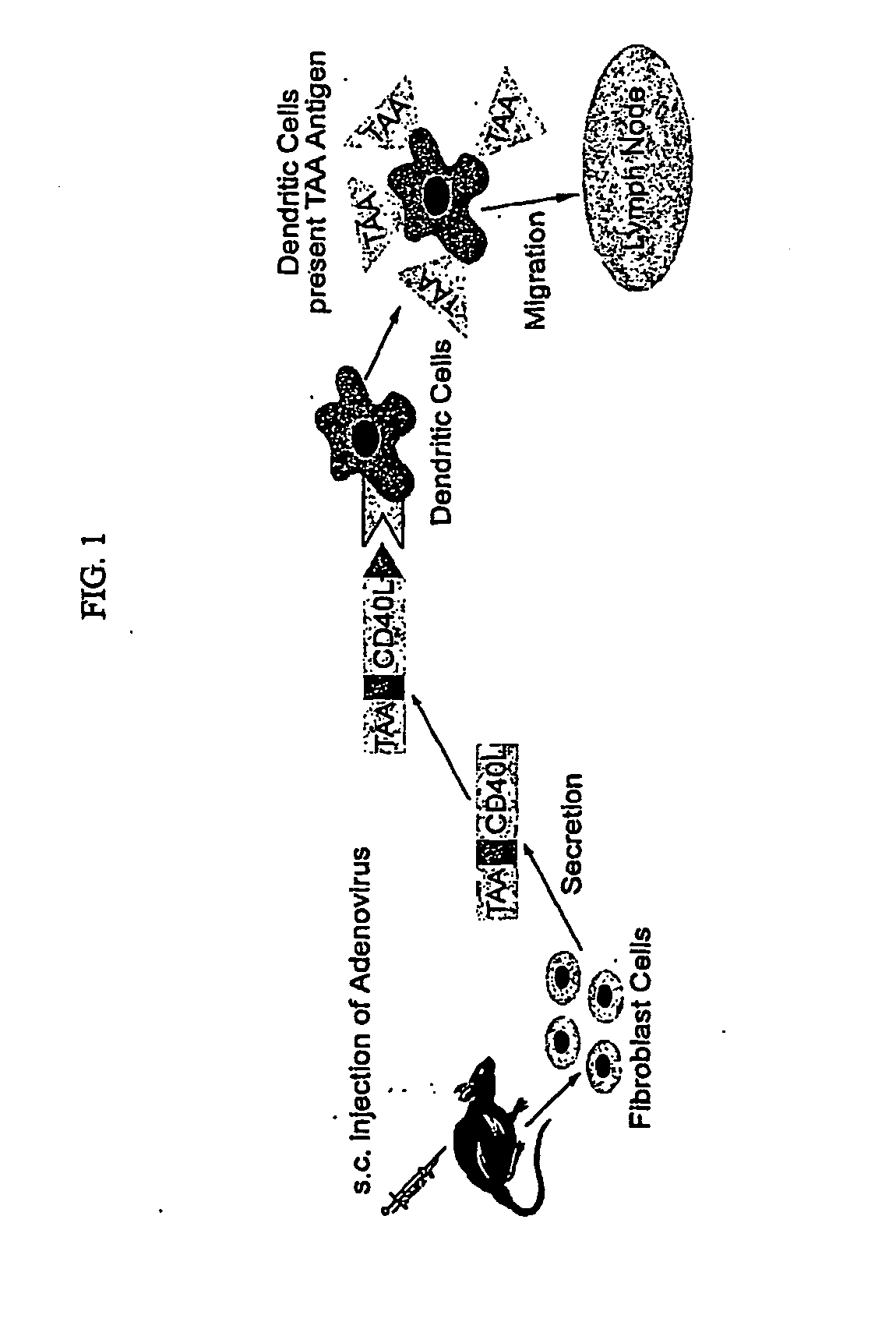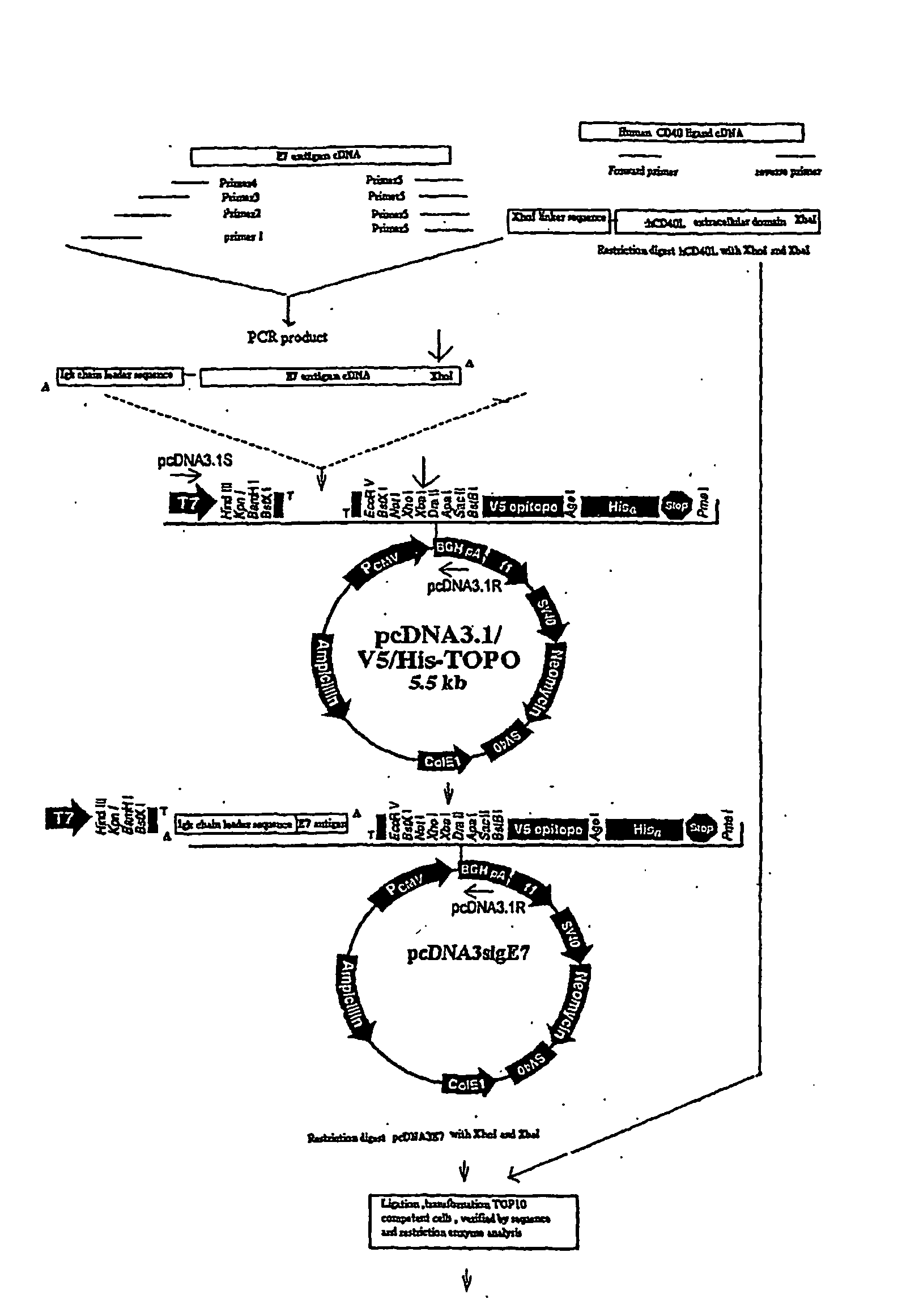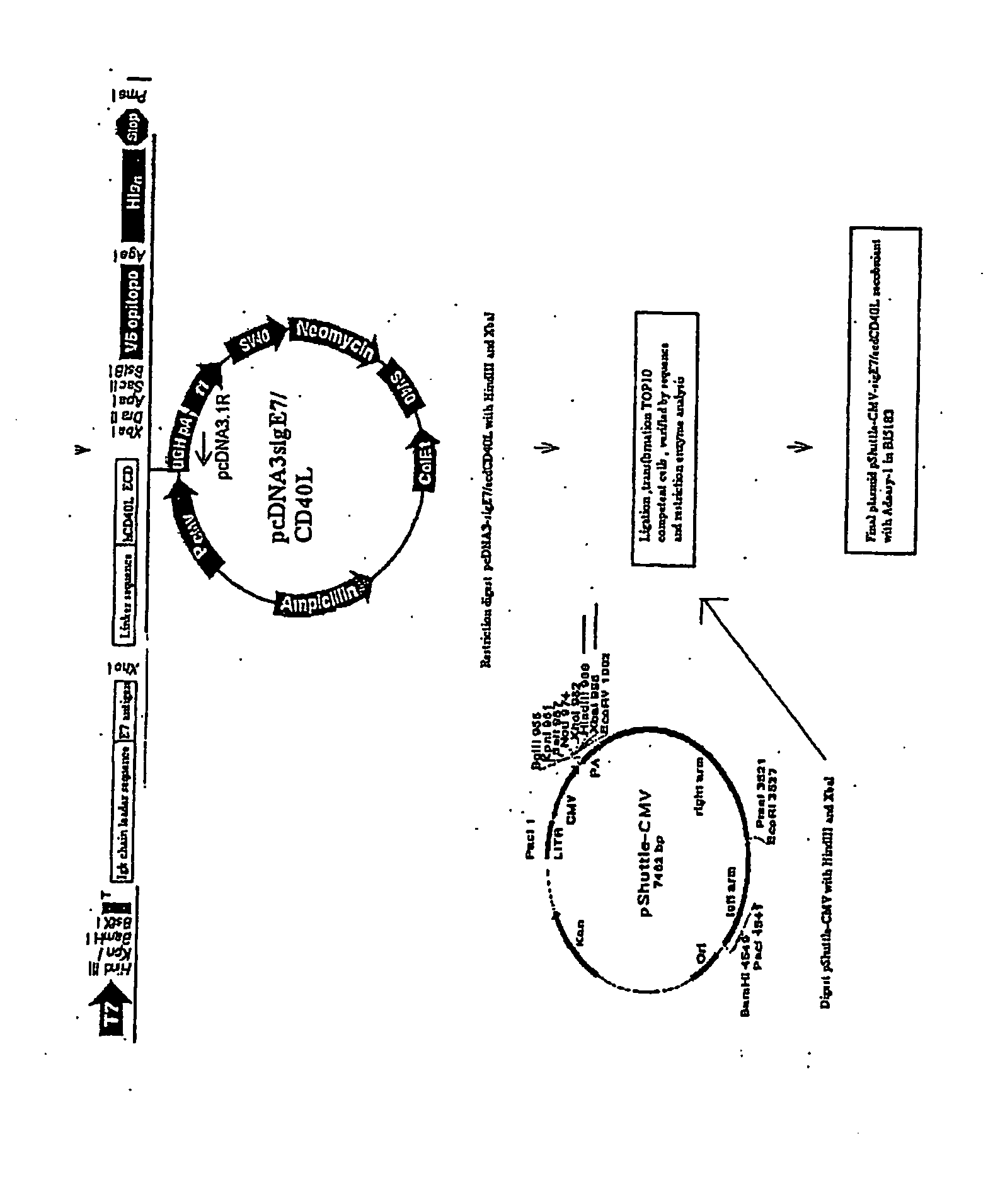Adenoviral Vector Vaccine
a technology of adenoviral vector and adenoviral plasmid, which is applied in the field of development of immunity against antigen-expressing cells, can solve the problems of insufficient surface apcs, difficult application to routine clinical practice, and resource-intensive current procedures for isolating and activating dcs, and achieve the effect of increasing the immune respons
- Summary
- Abstract
- Description
- Claims
- Application Information
AI Technical Summary
Benefits of technology
Problems solved by technology
Method used
Image
Examples
examples
1. Construction of Adenoviral Expression Vectors
[0062] The transcription unit, E7-ΔCtΔTmCD40L, of the adenoviral vector encoded a signal secretory sequence followed by the HPV type 16 E7 gene which was connected via a linker to the fragment of the CD40 ligand which contained the extracellular domain without the transmembrane or cytoplasmic domains. E7 was small enough that it did not disrupt the natural assembly of a homotrimeric array trimeric of the native wild type CD40 ligand. The fusion protein was engineered to be secreted from vector infected cells by the addition of a signal sequence to the amino-terminal end of the E7 protein and by deletion of the transmembrane and cytoplasmic domains of the CD40 ligand.
[0063] The transcription unit was introduced into the E1 gene region of the adenoviral vector backbone. After the adenoviral vector particles were generated in HEK 293 cells, the vector DNA was purified by cesium chloride gradient centrifugation. The presence of the signa...
PUM
 Login to View More
Login to View More Abstract
Description
Claims
Application Information
 Login to View More
Login to View More - R&D
- Intellectual Property
- Life Sciences
- Materials
- Tech Scout
- Unparalleled Data Quality
- Higher Quality Content
- 60% Fewer Hallucinations
Browse by: Latest US Patents, China's latest patents, Technical Efficacy Thesaurus, Application Domain, Technology Topic, Popular Technical Reports.
© 2025 PatSnap. All rights reserved.Legal|Privacy policy|Modern Slavery Act Transparency Statement|Sitemap|About US| Contact US: help@patsnap.com



